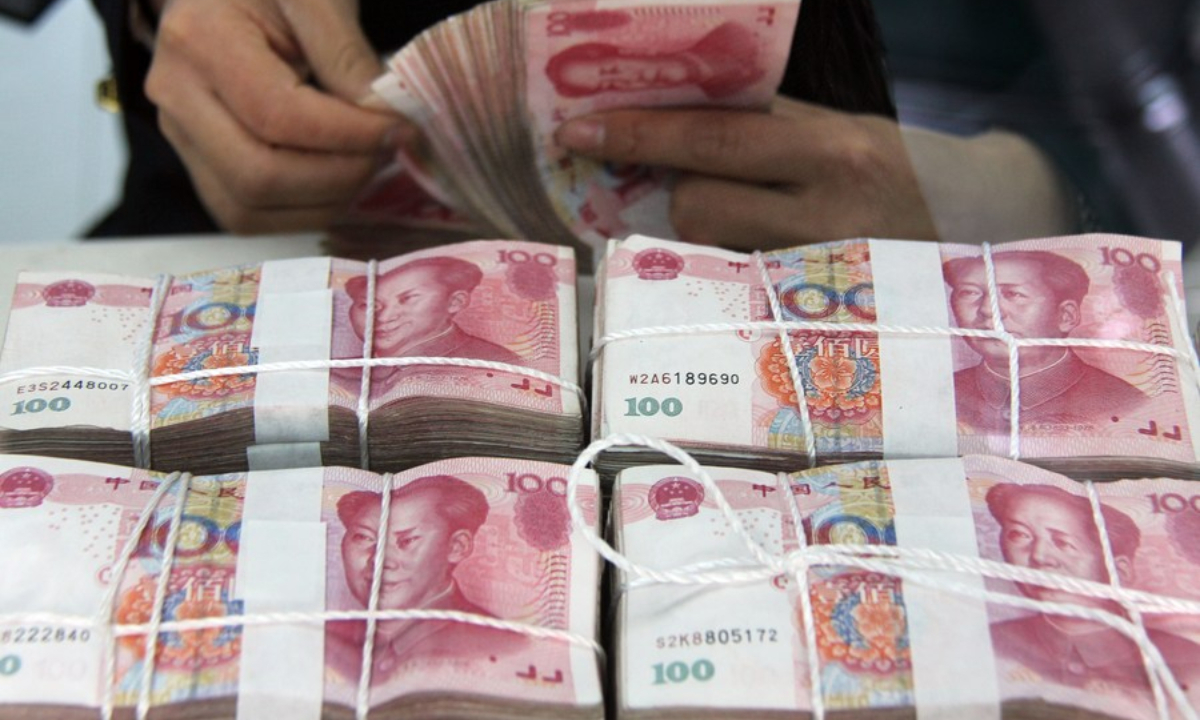
Photo: Xinhua
As the risk of a global economic recession, the Russia-Ukraine conflict, and the resurgence of the epidemic in some regions has put the Chinese economy under great pressure, proactive fiscal policy, rather than monetary policy stimulus, is urgently needed to stabilize the macro economy by boosting domestic demand and consumption, prominent Chinese economists said at a key forum on Saturday.
At a time when China's exports are expected to face great uncertainty, it is essential to increase certainty in terms of domestic demand, Shen Jianguang, chief economist from JD.com, noted at the Tsinghua PBCSF Chief Economists Forum in Beijing, which focused on China's economic and policy outlook amid a turbulent 2022.
China's export growth slumped to 3.9 percent year-on-year in April, marking its lowest level in almost two years, latest customs data showed. In 2021, China's exports jumped 21.1 percent year-on-year, offering a big boost for the country's economic growth last year.
The sharp contrast is sufficient to indicate that the external environment has changed dramatically this year. Skyrocketing inflation in the US forced the Federal Reserve to start increasing interest rates, which is expected to exert great pressure on the US economy in the second half of 2022. Meanwhile, the Russia-Ukraine conflict has hit the European economy very hard by exacerbating the region's energy crisis.
"The possibility of a global recession next year needs to be taken into account, and the potential impact will be felt on Chinese exports this year," Shen said.
The old growth model that relies on external demand to drive economic growth is no longer sustainable, and China needs to drive domestic demand more by consumption than by investment, Li Xunlei, chief economist at Zhongtai Securities, said at the forum.
Li also pointed out that because of its large population, China has a huge consumption market, which indeed contributed to its high-speed economic growth over the years. But because Chinese households spend more on investment and home purchasing, there is a problem of low consumption rate, which needs to be improved through corresponding policies.
While it may seem inevitable that China will roll out some sort of stimulus program to tackle the challenges and risks, economists generally believe the stimulus this time should be different from flooding the market with excessive liquidity through monetary easing as in the past.
According to Lu Ting, chief China economist at Nomura, with space for monetary policy easing relatively limited, China will need to adopt more proactive fiscal policy and optimize the fiscal expenditure to stabilize expectations.
If China only faced economic problems currently, then monetary stimulus would be enough to solve the problem. But the epidemic and the Russia-Ukraine conflict are not economic problems, even though they have seriously affected the sustainable development of the economy, Li noted. So using economic tools like monetary policy will not be effective under the current situation. Fiscal policy, by contrast, can solve more structural problems.
As to the specific measures, Shen suggested consumption vouchers could be used to stimulate spending, which will not only help with economic rebound in the short term, but also crucial in boosting confidence.


